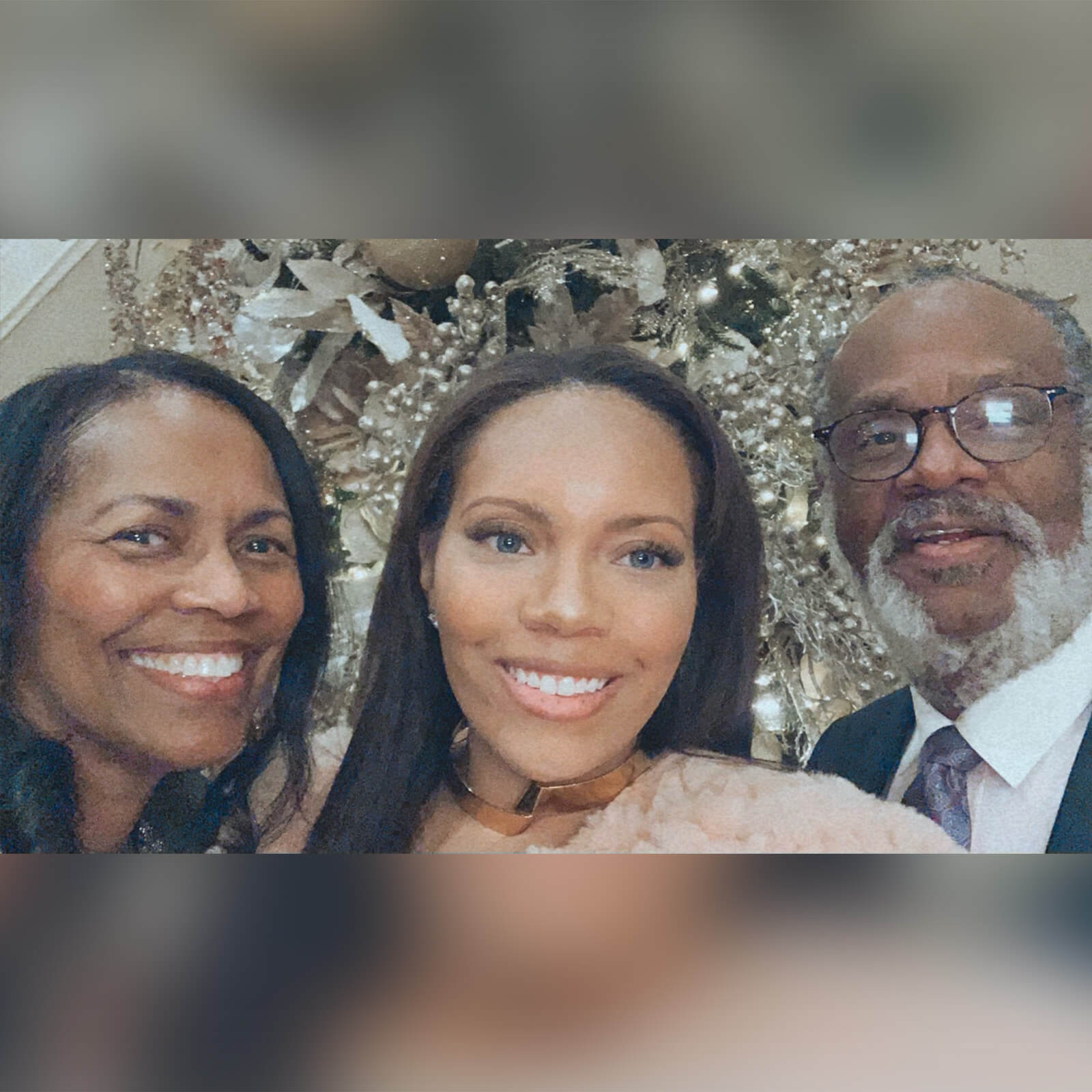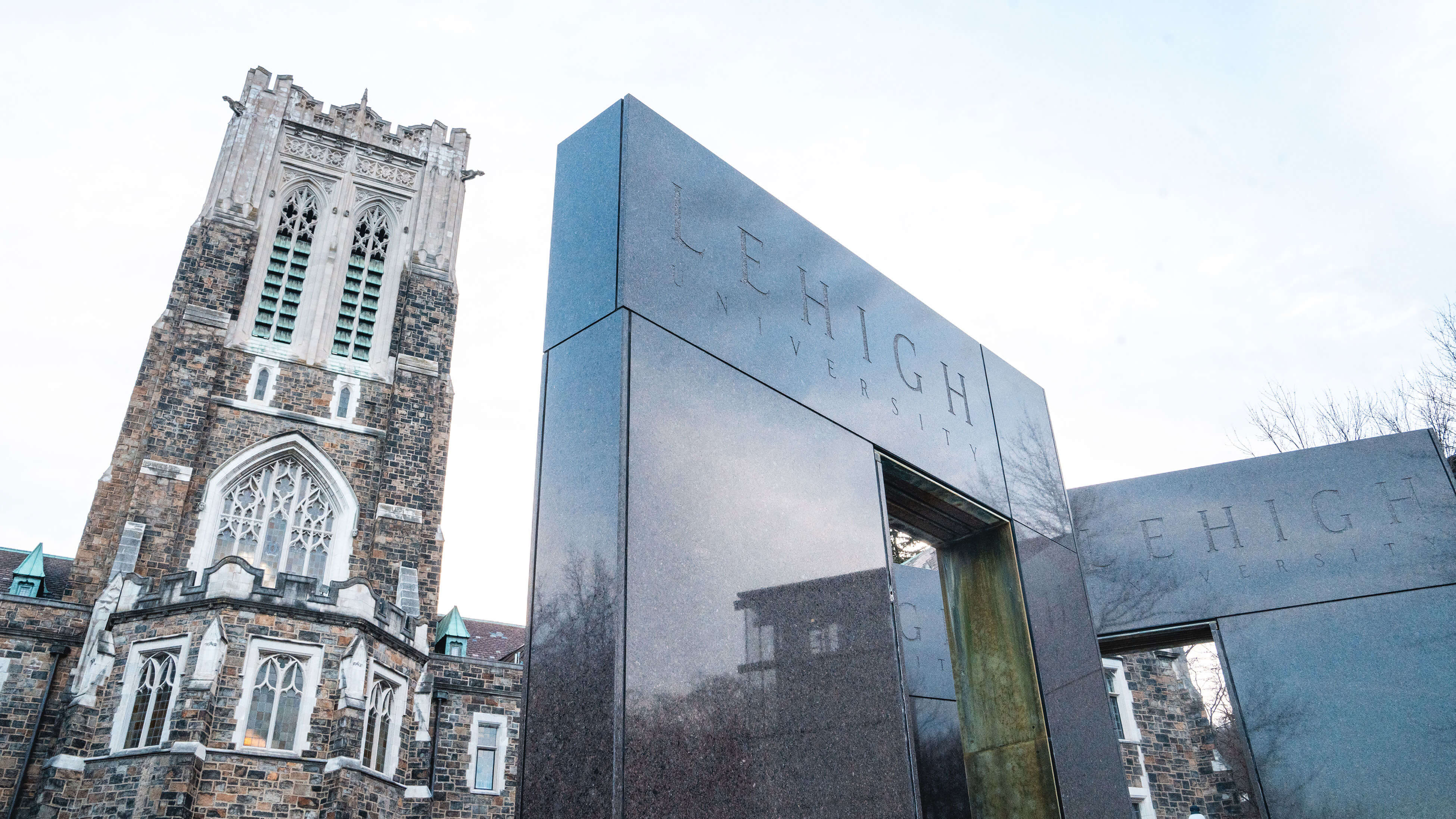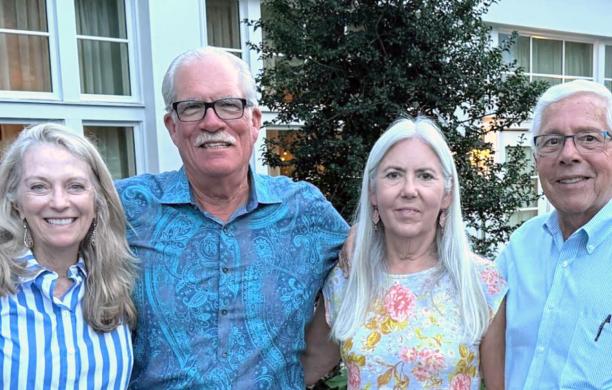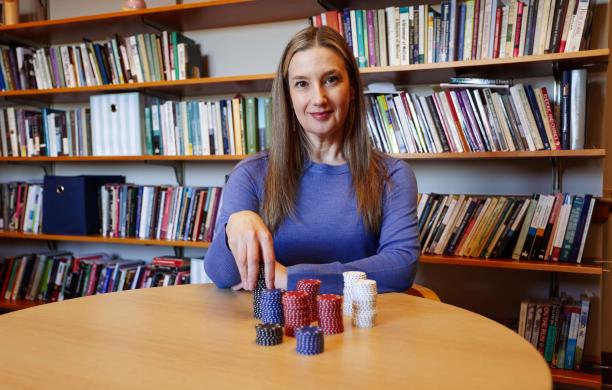“Here comes the neighborhood.”
That’s what economics professor John Keefe would say when he saw Ralph Thomas ’76 ’77G approaching. Keefe nicknamed Thomas “the neighborhood” and affectionately referred to him that way during their frequent meetings.
Maybe “neighborhood” derived from Thomas’ connections across campus (particularly wrestling tickets). Maybe it referenced his different perspective on the Lehigh experience.
No matter its derivation, Thomas saw Keefe as a mentor who helped him navigate his days at Lehigh and his days after leaving South Mountain … and the relationship served as one of the big reasons that Thomas gives back to Lehigh today.

Coming to Lehigh
Thomas’ father moved in the 1940s from Texas to Washington, D.C., for greater opportunities. He landed a job in a department in the Navy. That’s where he met Thomas’ mother.
Thomas was the youngest of his parents’ three children.
Thomas’ father had an 8th grade education … a point Thomas emphasizes when speaking to students at Lehigh. Education was stressed in the household as a means to improve one’s life.
Thomas took it to heart and was co-valedictorian of his junior high and high school class. His siblings graduated from Howard University and Cheyney University, historically black universities. Thomas though took a different route.
He was considering Notre Dame and University of Texas, going back to his father’s roots. But he recognized that coming home to Washington, D.C., would be more difficult the further west he went.
That’s when Nathan Harris, assistant dean of student life, visited Thomas’ high school and spoke with students about Lehigh.
What Harris said struck Thomas. Off to Lehigh he went.
Time at Lehigh
Once arriving on campus, it took three weeks before Thomas unpacked his bags.
‘What have I done to myself?’ was the question nagging him.
While most first year students face doubts and challenges during their first few weeks, being Black at a predominantly white institution was a bit of a shock for Thomas.
On top of that, finding company to process the transition wasn’t easy. It was only the second year of women undergraduates on campus, so dating was not an option. As he remembers it, “the six to 12 African American females in my class were quickly spoken for.”
10 days into his engineering major, Thomas recognized it was not for him.
So he quickly needed to pivot.
He took a test to find a better fit for his area of study. While the dean of engineering wanted him to stick it out, Thomas moved to the College of Business.
When home for his first break, Thomas looked into transfer schools. Alas, he found out that he’d lose some of his credits. His parents told him to stick it out. So he did.
That’s when he plugged in to Lehigh. He joined the Black Student Council and pledged Beta Theta Pi. He became an athletic trainer for football, baseball, wrestling, and basketball, traveling with the junior varsity to away games.
He became a teaching assistant to two professors: Keefe and Jim McIntosh, professor emeritus of sociology.
Those professors along with Dean Harris helped cement Thomas to Lehigh through their friendship and mentorship. He remembers when Keefe sat him down and mapped out his career path – a plan that shocks Thomas today because it played out exactly as Keefe saw it.
Career Success
Thomas attended the home club events to network with alumni. While there, he met a contact at Price Waterhouse. Thomas interned there for three summers and was offered a role upon graduation.
When the moment came that he was eligible to add senior to his title, he worried. No person of color earned that title in under four years. A coworker of his inquired about his demeanor. When he confessed where his worry originated, the coworker reassured him that his name was on the list.
Thomas was shocked. Less about earning the senior title in two-and-half years, he was more shocked that a peer of his had such insider knowledge. That’s when he realized that hard work had to be balanced with the right kind of hob-nobbing. So he joined the company basketball team to better get to know his colleagues.
Friendships have mattered greatly in his career.
He became friends with the first female African American CPA in Washington, D.C., through the National Association of Black Accountants (NABA). He soon served as the president of the D.C. chapter of NABA and later became the national president of the organization. He’s a lifetime member of NABA and was appointed to NABA’s corporate advisory board. He also was named a “NABA Legend” at the 2009 Annual Convention and recipient of the organization’s 2010 National Achievement in NonProfit Award and 2010 Presidential Service Award.
Beyond national service to his field, Thomas also served his state. He began his work as CEO and executive director of the New Jersey Society of CPAs in 1999 and led the organization through a big shift.
“I wanted CPAs to be seen as strategic advisors and legislative influencers, not just tax and audit professionals,” he says.
He served in that role for 23 years and was named by Accounting Today as one of the “Top 100 Most Influential People in Accounting'' for five straight years. Thomas leveraged that position to aid several colleges and universities, including Rutgers and Seton Hall, as a member of their accounting advisory boards.

Service to Lehigh
While he helped other universities, he also helped Lehigh. It began as president of the alumni association and transitioned to the board of trustees. For thirteen years, he was a member of many committees and subcommittees: audit, finance, student affairs, academic affairs, campus planning and operations, and, most importantly, diversity.
“Lehigh is, and has been, moving in new directions to bring more students of color and faculty of color to campus,” he says. “The university remains committed and engaged in this initiative. I’m proud to see that one-third of students are students of color. Lehigh has done a good job and continues to make strides.”
These are areas of interest that have spurred two planned gifts from Thomas to Lehigh. He is presently supporting the recruitment, retention, and professional development of underserved students and faculty in the College of Business through the establishment of an endowment. He and his wife also made the decision to further support this area along with the recruitment of through a bequest.
“I am honored to be in a position to give back,” he says. “Seeing leaders in the community and faculty who look like the students is important.”
He reminisces about the two professors who helped guide him.
“I am hoping to encourage other alumni of color to get engaged and ensure that the campus is a comfortable and thriving space for students and faculty of color.”



